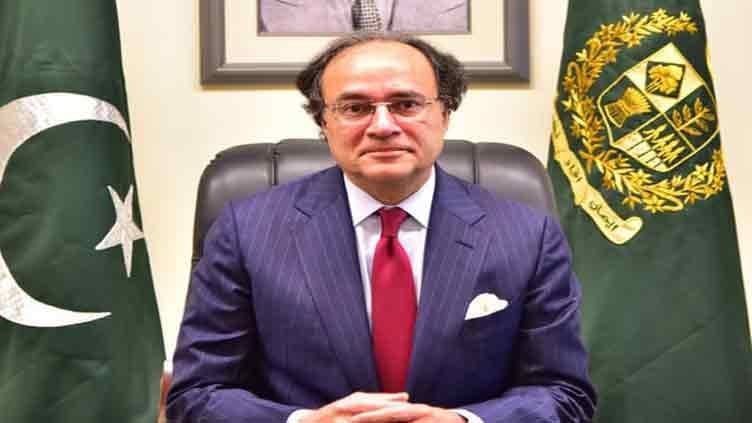ISLAMABAD – Finance Minister Mohammad Aurangzeb has stated that there is nothing secret in the loan agreement with the IMF, and no country is willing to roll over deposits or loans. However, countries like China, Saudi Arabia, and others are interested in investment.
According to media reports, while addressing the Literature Festival in Islamabad, the Federal Finance Minister mentioned that the currency has stabilised and foreign exchange reserves are improving.
By March-June, foreign exchange reserves are expected to equal three months of imports. He also noted that inflation has decreased, and this should benefit the common people.
Minister Aurangzeb further explained that there has been a 14% drop in chicken prices in the global market, while in Pakistan, it has increased by 15%. The government has repaid a loan of one billion dollars, and foreign exchange reserves remain stable. He emphasized that there is nothing secret in the loan agreement with the IMF.
He stated that the tax-to-GDP ratio of 9 to 10 percent is not sustainable, and tax reforms are needed. Structural reforms are essential, and the credibility and trust of the FBR as an institution need to be restored. Focus will be on technology for end-to-end digitization. He mentioned that even salaried individuals cannot file tax returns without an advisor, but the country is progressing in digitization, aiming to curb leakage, bribery, and corruption in refunds.
He urged the business community to avoid speed money. In his speech at the Literature Festival, Aurangzeb stated that the country cannot be run on donations, and the private sector must step up to run the country. No one is now ready to roll over deposits or loans, but countries like China, Saudi Arabia, and UAE are striving for investment. The CPEC Phase I focuses on infrastructure development, and Phase II is business-to-business.
He emphasized that the Prime Minister is very clear about attracting foreign investment, and now everything will be done at the B2B level. The government’s role is not to run businesses, so the private sector must step forward. He also noted that privatizing PIA is not an easy task; otherwise, it would have been done 10 years ago.
Aurangzeb mentioned that there are various methods for privatizing state-owned enterprises, such as outsourcing and public-private partnerships. He added that there are plans to issue Euro bonds next year, and discussions are ongoing for Panda bonds. Pakistan’s population growth rate is 2.55%, and the population explosion is already a major challenge. With a population of 240 million, they are facing difficulties; the situation will worsen when the population reaches 400-450 million.
He highlighted that reforms in taxes, energy, and state-owned enterprises are essential. He acknowledged the importance of welfare work but stressed that long-term national development requires taxes.
Energy costs are coming down to affordable levels, but further structural reforms are needed. There should be reforms in state-owned enterprises (SOEs), and they should be privatized. The private sector should lead so that dependency on the government is reduced, and the system can function more effectively.

